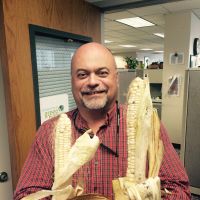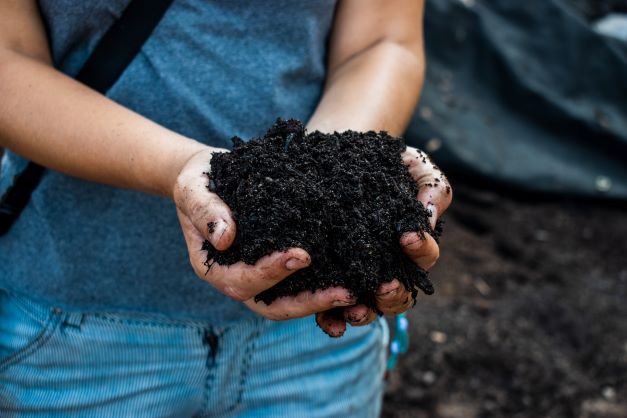From the villages of Afghanistan to the City of Minneapolis, Jim Doten’s work could reshape our city’s agricultural and forest future.

Jim, the Health Department’s Carbon Sequestration Program Manager, spent his life trying to improve the food system around the world. Now, he’s using his expertise to bring the benefits of biochar to our city. His dream is a decade in the making.
From Afghanistan to Minneapolis
In 2011, Jim paused his employment at the Minneapolis Health Department to serve his country as a hydrologist in Afghanistan.
Seven thousand miles away from home, Jim helped the people rebuild and improve the country’s food system in villages 100 miles east of Kandahar. The task was challenging due to poor crop conditions and depleted soil. While researching soil restoration, Jim discovered biochar – a special type of charcoal.
What is biochar
Biochar is a special type of charcoal produced by heating woodchips (or other organic material) at high temperatures. The process of making biochar turns the wood chips into a long-lasting form of carbon that won’t re-enter the atmosphere.

Biochar is used as a soil amendment to provide many environmental benefits that:
- Improve soil quality.
- Increase nutrients for plants.
- Reduce pollution in our soils.
- Treat stormwater runoff.
Back home
When Jim returned to the Minneapolis Health Department in 2013, he brought the idea of biochar to his boss. They found that:
- Fruits and vegetables grew better.
- Crops were healthier and bigger.
- Less water was needed to grow the crops.
Jim started up a pilot program in the Green Zones where community members had limited access to healthy food. His initial efforts were with the city’s Native American community working with the Shakopee Mdewakanton Sioux Community. The program was a success, helping produce healthier food and more of it.
City of Minneapolis biochar production facility
Ten years after Jim first introduced the idea to Minneapolis, the City is in the process of building a biochar facility, one of the first city governments to do so.
The City anticipates the facility will be able to:
- Handle up to 3,600 tons of wood waste.
- Create more than 500 tons of biochar each year.
- Remove an estimated 1,500 tons of carbon dioxide from the air each year.
The Biochar Program is one of the many ways we are reducing our impacts on climate change and increasing climate resilience. Biochar production at the facility is expected to begin in the summer of 2024.
Learn more
To learn more about the city’s efforts on biochar, sign up for the Biochar newsletter or contact us at BiocharHealth@minneapolismn.gov.

